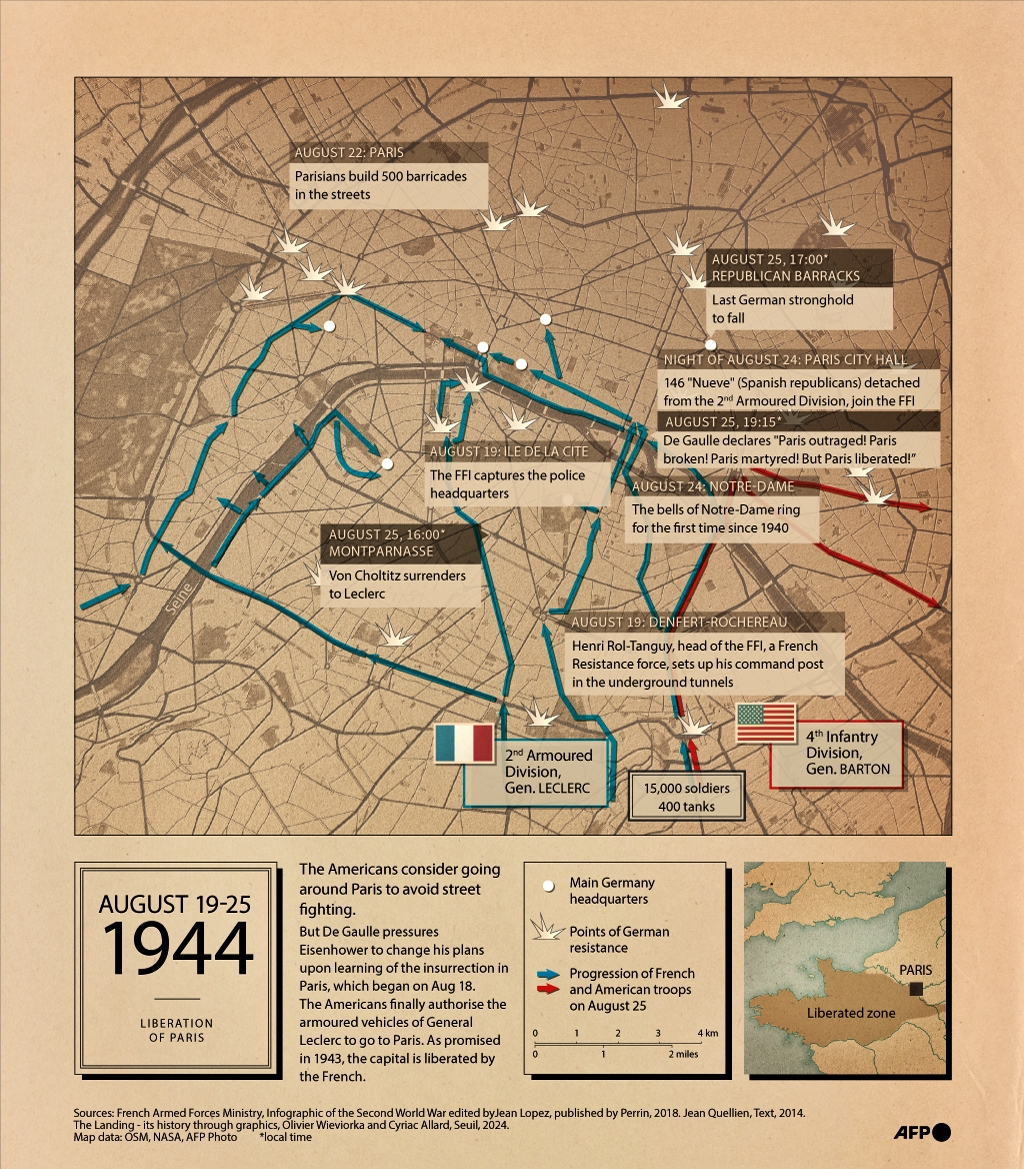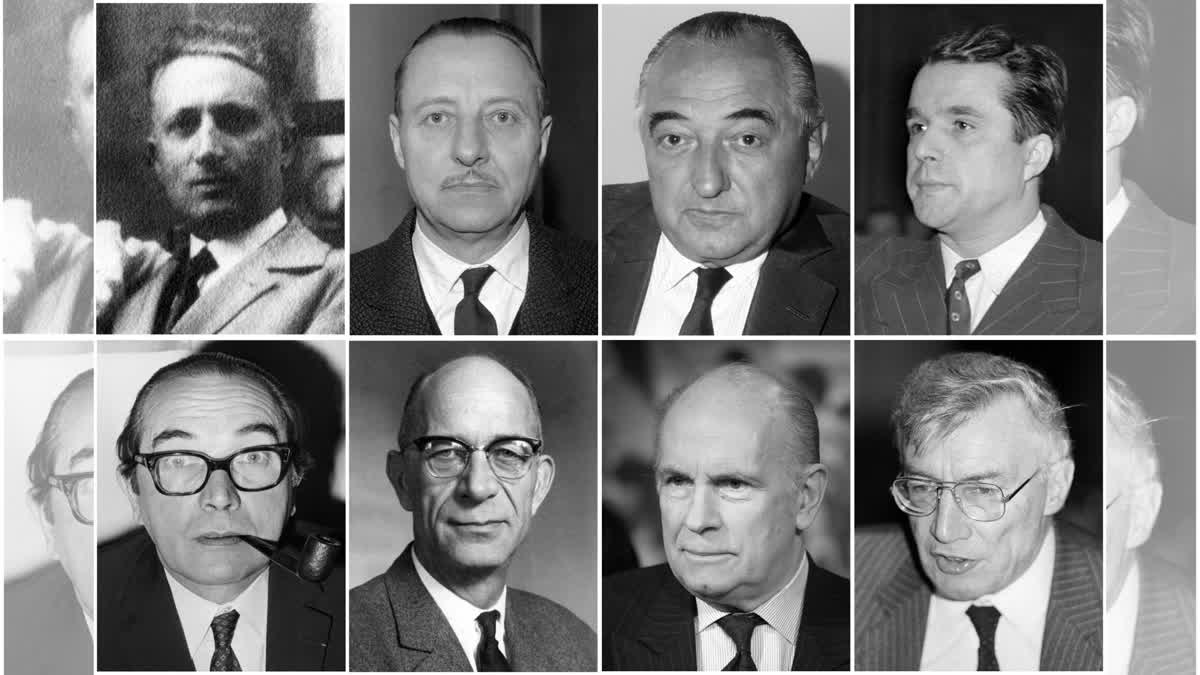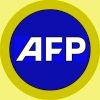Paris, France: Agence France-Presse was created in the tumult of World War II by a band of resistance journalists who stormed a pro-Nazi newsroom and took over five days before Paris was liberated. It was August 20, 1944, two days after Resistance leader Henri Rol-Tanguy had called Parisians into action against the Nazis who had occupied their city for four years.
Propaganda
The group of eight met at 7:00 am outside a dilapidated building near the stock exchange at 13 Place de la Bourse, in the heart of Paris, where the French Information Office (OFI) was installed. It had been the home of Havas, the world's first international news agency that was nationalised by the pro-Nazi regime in 1940 to set up the OFI.
"It had become an agency of German propaganda," one of the eight, Gilles Martinet, recalled in a radio interview in 2004. The streets were empty on that hot summer Sunday, although a German tank was stationed close by, another of the group, Basile Tesselin, would write later in his memoirs.

'Nobody move'
The group was soon joined by two policemen sent by the Resistance committee organising the Paris uprising. They were the only ones carrying weapons. Together they stole up the stairs and burst into the newsroom. Ten heads darted up, astonished.
"Nobody moves, nobody leaves," shouted Claude Martial-Bourgeon, the eldest in the group of mostly former Havas editors. "From now on you work for France, and not the Germans." No one moved. A German censor was taken to the basement and locked in.
Martial-Bourgeon took charge and assigned roles. Martinet, just 28, was made editor-in-chief. The journalists immediately set to work, making contact with teams of underground newspapers such as Combat, Defense de la France, Le Parisien Libere and L'Humanite.
First dispatch
At 11:30 am the first story went out, announcing they were back in business. The first stories were printed on early stencil duplication Roneo machines and distributed by cyclists to newspapers and Resistance offices across the city.
Communication was established with journalists of the French government-in-exile led by Charles de Gaulle in London. The news team grew fast. People slept at the office and raided the stocks of a nearby restaurant that had served as a canteen for German officers. On the menu: pate, foie gras and fine wines.
Paris liberated
Over the next days reporters crossed the city on bicycles, watching for the arrival of the first French and allied troops. The scoop went to Basile Tesselin, who had installed himself in the police headquarters with a phone line from the police chief's bathroom.
"General (Philippe) Leclerc entered Paris this morning, at 8:45...," he reported on August 25. "All the bells of Paris rang out and it was a moment of intense emotion," Martinet said. Just hours later, other dispatches announced that the Germans had surrendered. Paris was liberated.
Agency expands worldwide
"Everything had been decided a month earlier, the strategy, tactics, and above all the objective of recreating a big French news agency capable of being heard in the four corners of the world, the successor to the Havas agency founded in 1835," Tesselin later said.
In 1957, the French parliament adopted the AFP Statute guaranteeing the agency's editorial independence and financial autonomy. Still headquartered at Place de la Bourse, it has expanded to cover more than 150 countries, becoming one of world's biggest news agencies alongside Reuters and Associated Press.



